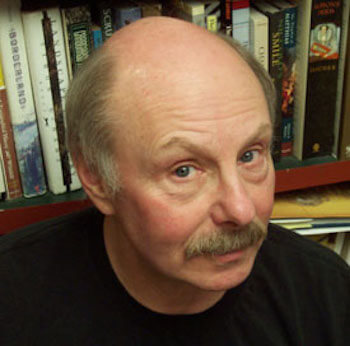We live at the end of the age of oil, an unprecedented era of cheap and abundant fossil energy that has shaped everything from the layout of cities and towns to the military thrust of modern states.
Beginning in the 1950s and continuing until his death in 1977, E. F. Schumacher worked to sound the warning about the inevitable consequences of treating oil, and the economic growth predicated upon it, as though its supply were limitless. In the mid-seventies—when oil prices were around $13 a barrel—he wrote in a paper called the “End of an Era,” about a “very, very short period in history of cheap and plentiful oil [that] is now over.” A sudden exhaustion of the resource was not the issue. Rather, Schumacher saw a destructive course that would likely lead to perilous shortages at times of greatest demand. He understood that basing the growth imperative of industrial nations on a declining oil supply had inherent limits. In other words, he foresaw what today is upon us—the peak of global oil production.
 False panaceas abound that promise to maintain the status quo of a globalized society run on previously cheap, non-renewable sources of energy. James Howard Kunstler is known as a debunker of what he considers unrealistic promises. Kunstler sees no possible global solution to the future of declining oil supplies; he sees only local solutions.
False panaceas abound that promise to maintain the status quo of a globalized society run on previously cheap, non-renewable sources of energy. James Howard Kunstler is known as a debunker of what he considers unrealistic promises. Kunstler sees no possible global solution to the future of declining oil supplies; he sees only local solutions.
Kunstler proposes a radical new direction for our society. He starts by taking a critical look at the American habit of automobile dependence and the commuter-dependent design of our nation’s suburbs. In a recent speech, he stated that “the global peak oil production event will change everything about how we live. It will challenge all of our assumptions. It will compel us to do things differently—whether we like it or not.” Kunstler’s belief is that the resulting changes will force Americans to “downscale” and decentralize their economic activities. Casting these changes in a positive light, Kunstler argues that, in exchange, communities are strengthened by a more human-scale existence and economy.
“Downscaling America doesn’t mean we become a lesser people,” he says. “It means that the scale at which we conduct the work of American daily life will have to be adjusted to fit the requirements of a post-globalist, post-cheap-oil age. . . . It will be about the design and assembly and reconstituting of places that are worth caring about and worth being in. When you have to stay where you are and live locally, you will pay a lot more attention to the quality of your surroundings, especially if you are not moving through the landscape at 50 miles-per-hour.”
This Sunday, February 27, 2004 James Howard Kunstler will be speaking at the Berkshire South Community Center for the Annual Meeting of the Great Barrington Land Conservancy. The Schumacher Center is a co-sponsor of the event. For all those concerned about the root problems inherent in the our dependence on non-renewable energy and who seek alternatives of lifestyle, community structure, and economics systems, Kunstler will be a galvanizing voice. We hope to see you on Sunday.